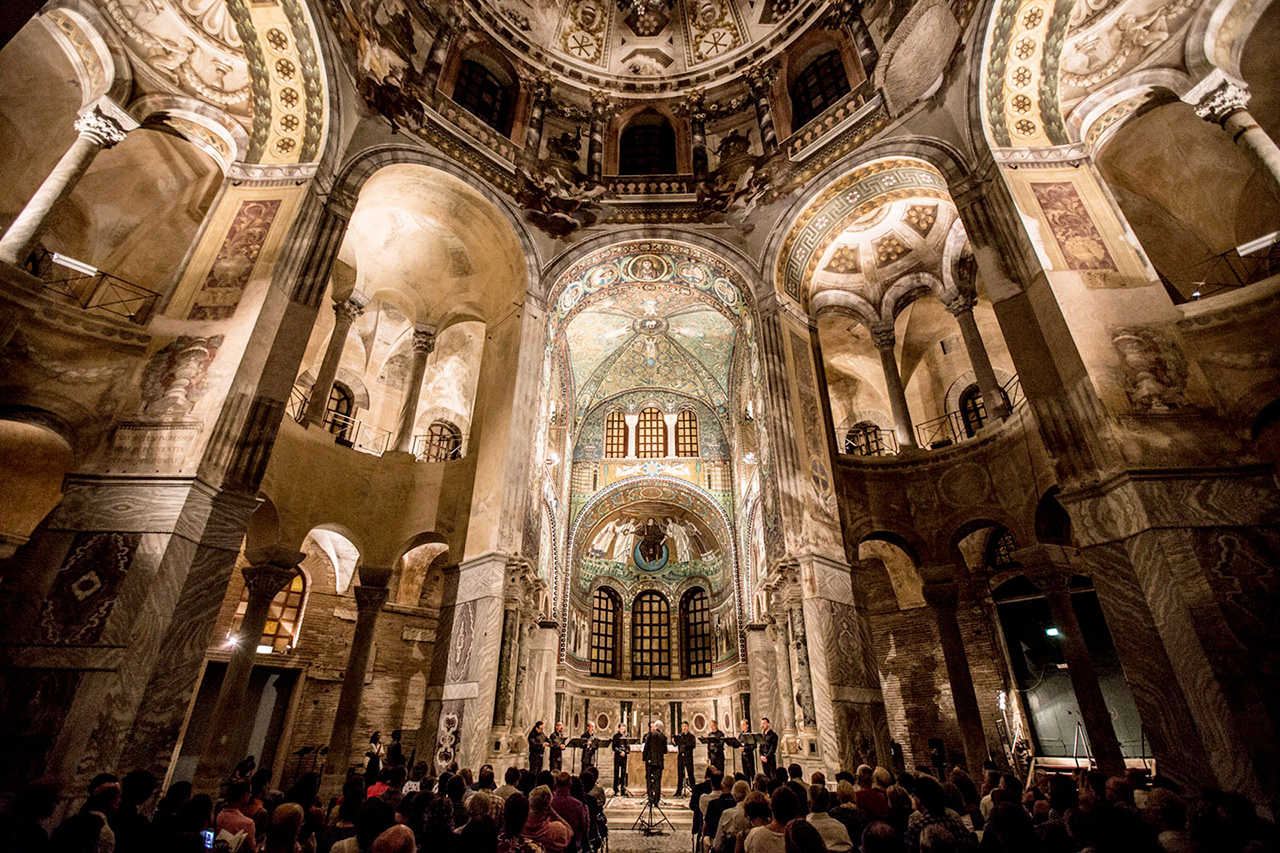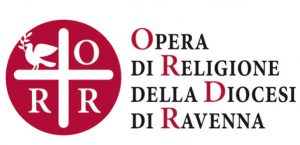© Jenny Carboni
The Vespers at San Vitale
Candia, a crossroads of cultures
Ensemble La Dafne
Stefano Rossi, Ayako Matsunaga violini
Rosita Ippolito viola da gamba e violone
Valeria Montanari clavicembalo
Fabiano Merlante tiorba
Ewa Gubańska mezzosoprano
Francesco Cavalli (1602-1676)
Canzon a 3 da Musiche sacre concernenti Messa e Salmi (Venezia, 1656)
Franghiskos Leontaridis (1516 ca. – 1572 ca.)
Crucifixus dalla Missa super Aller (Proske Music Library, Ms. No. 907)
Salomone Rossi (1570-1630 ca.)
Sonata undecima detta “La scatola” da Il quarto libro delle varie sonate (Venezia, 1642)
Giovanni Legrenzi (1626-1690)
Credidi per contralto, archi e b.c. (Staastbibliothek zu Berlin, D-B Mus. Ms 30222)
Salomone Rossi
Sonata sesta sopra l’Aria di Tordiglione, da Il quarto libro delle varie sonate (Venezia, 1642)
Franghiskos Leontaridis
Benedictus dalla Missa super Aller (Proske Music Library, Ms. No. 907)
Heraklion (Latinised as Candia), the capital of the Mediterranean island of Crete, was an important crossroads for musical cultures between the fifteenth and seventeenth centuries. Difficult to reconstruct the repertoires that were common on the island in the Venetian era, but several clues emerge: we know, for example, that the Venetian influence on the local Orthodox Church managed to introduce the organ and the polyphonic singing style into Byzantine liturgy, previously dominated by monody and characterized by a ban on instruments. And so the programme proposes an imaginary musical fresco that combines eminent figures of Western music with the Greek, Turkish-Ottoman and Jewish musical traditions.
The Basilica of San Vitale di Ravenna is a suitable place for this ideal meeting of music cultures. It should be remembered that, during the Venetian rule in Ravenna, the last members of the ruling Da Polenta family, Ostasio III and his son Girolamo, were exiled to Heraklion, where the family died out. The concert will propose such authors as Franghiskos Leontaridis, a Cretan composer from the Renaissance; Salomone Rossi, a Jew from Mantua whose production clearly echoes the melodies of the Jewish tradition; Francesco Cavalli, a famous opera composer, and Giovanni Legrenzi, a master of the “Venetian” instrumental style.



